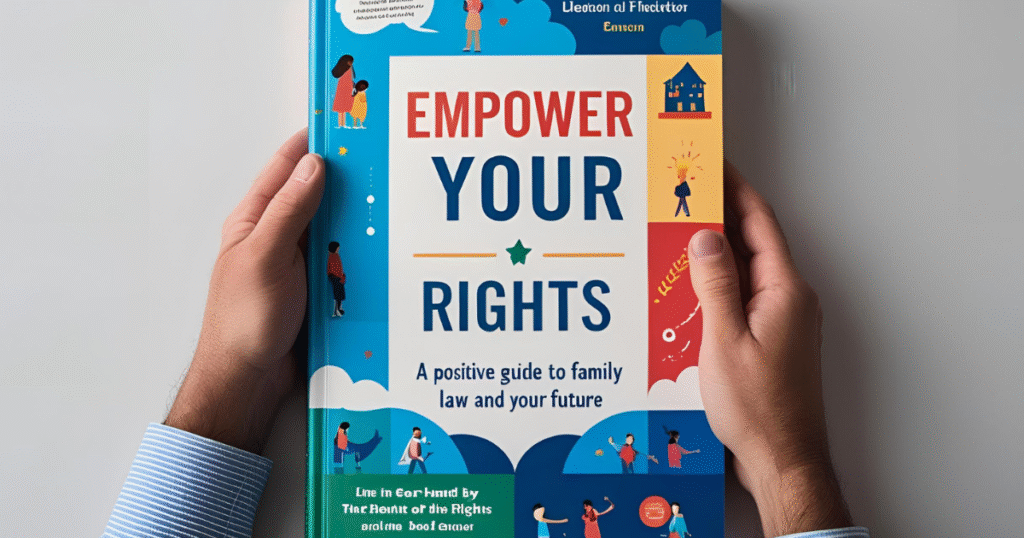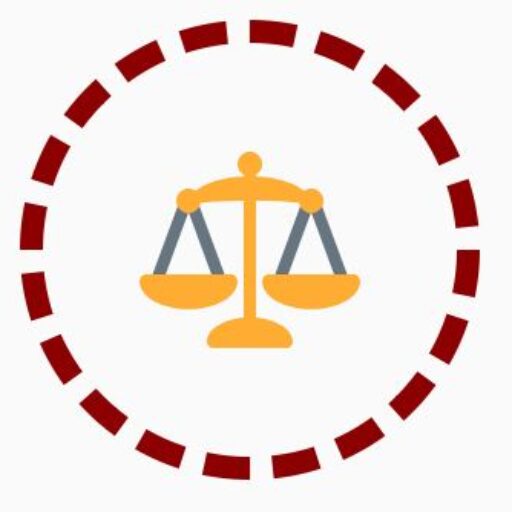Family Law isn’t just conflict. Discover rights & navigate divorce, custody, support positively. Learn key strategies for protection, fair outcomes & building a secure future. Empower yourself. It’s the foundation of our lives, the source of our deepest joys, and sometimes, the arena of our most complex challenges. When relationships evolve, children arrive, or partnerships change, navigating the legal landscape can feel overwhelming. The term “Family Law” often conjures images of contentious court battles, painful divorces, and fractured relationships. But what if we flipped the script? What if we saw Family Law not as a battleground, but as a framework for building security, protecting rights, and forging a brighter, more stable future?
This guide is meant to empower you. We’ll clarify family law, focusing on its positive potential: protecting your well-being, protecting your children, ensuring fairness, and laying the foundation for a future full of possibilities. Knowledge is power, especially when it comes to your rights in the complex world of family law.

Beyond Divorce: The Expansive Realm of Family Law
While divorce is an important aspect, family law involves much more than that. It is the legal structure governing the most basic aspects of our personal lives:
- Marriage and cohabitation: prenuptial agreements, marriage licenses, and rights/responsibilities within committed relationships (including nonmarital partnerships in some jurisdictions).
- Parenting and children: Becoming a parent (fatherhood/motherhood), custody (now often called “parenting time” or “decision-making responsibility”), visitation, child support, adoption, guardianship, and protecting children from abuse or neglect.
- Financial support: Determining appropriate spousal support (alimony) and child support obligations based on income, needs, and circumstances.
- Property and assets: Dividing marital property equally (or communally, depending on location) during separation or divorce, including homes, debts, pensions, and businesses.
- Domestic safety: Obtaining restraining orders or protective orders for victims of domestic violence.
- Elder law and guardianship: Addressing issues related to aging parents, incapacity, and guardianship.
Understanding that family law covers these diverse areas is the first step to recognizing its role in creating order and fairness during life transitions.
Changing the mindset: Family law as empowerment
Let’s consciously shift that perspective:
- Clarity Over Conflict: Family Law provides a structured process to resolve disputes. While disagreements happen, the legal framework offers pathways (like mediation or collaborative law) to reach agreements outside of a combative courtroom setting. Clarity on rights and responsibilities reduces ambiguity and future conflict.
- Protection as Priority: At its core, Family Law mechanisms are designed to protect the vulnerable – especially children. Child support ensures basic needs are met. Custody arrangements prioritize stability and the child’s best interests. Protective orders offer safety from harm. This is inherently positive.
- Foundations for the Future: A well-structured separation agreement or parenting plan isn’t just an end; it’s the blueprint for your next chapter. Clear financial arrangements and co-parenting schedules provide predictability, reducing stress and allowing everyone to move forward constructively.
- Enforcing Rights: Family Law empowers individuals to assert their legal rights, whether it’s ensuring fair asset division, securing necessary support, or establishing crucial parenting time. Knowing your rights gives you agency.
Let’s break down some core areas with an empowerment lens:
- Parenting Plans & Custody (Decision Making & Parenting Time): This is about the child’s best interests – always. Family Law helps create a structured plan for:
- Decision-making responsibility: Who makes the major decisions about health, education and religion? Can this be shared?
- Parenting time: Creating a predictable, stable schedule for the child to spend time with each parent.
- Child support: This is not punishment; it is a shared responsibility for the child’s well-being. Family law uses guidelines (often based on parents’ income, time with the child, and typical expenses) to calculate fair contributions for necessities such as housing, food, clothing, education, and healthcare.
- Spousal Support (Alimony): The goal is often to provide temporary financial assistance to a lower-earning spouse to help them become self-sufficient post-divorce, or sometimes longer-term support in specific circumstances (like long marriages or significant disparity).
- Property Division: How assets and debts acquired during the marriage are split. Jurisdictions follow “equitable distribution” (fair, not always 50/50) or “community property” (presumed 50/50).

Taking Positive Action: Empowering Your Journey
Knowledge is the foundation of empowerment. Here’s how to actively engage with family law:
- Seek knowledge, not just confrontation: Research reputable sources on family law in your jurisdiction. Understand the basic principles and terminology. Government legal aid websites and state/provincial bar associations are good starting points.
- Document thoughtfully: Keep organized records. This includes financial statements (bank accounts, investments, loans, tax returns), communication logs (especially relevant to co-parenting issues), and any agreements or court orders. Documentation supports your position and makes the facts clear.
- Prioritize self-care: Legal processes are stressful. Engage in activities that support your mental and physical health. Seek support from friends, family, or therapists. A clear mind makes better decisions.
- Explore Dispute Resolution Options: Litigation (going to court) is often the last resort and the most adversarial/expensive path. Family Law strongly encourages alternatives:
- Negotiation: Direct discussion between parties (or their lawyers).
- Mediation: A neutral third party facilitates discussions to help you reach agreement. Often faster and cheaper than court.
- Collaborative law: Each party hires specially trained attorneys who commit to settling without court. Specialists (financial, child experts) may be involved. The process focuses on problem-solving.
- Choose your legal guide wisely: If you need an attorney, find an attorney specializing in family law who aligns with your desired approach (e.g., collaborative, mediator, litigator). Ask about their philosophy, fees, and experience. A good lawyer is an advocate and advisor who helps you understand the options and consequences within the framework of family law. Don’t be afraid to consult with a few people before making a decision.
- Focus on the future, especially when it comes to children: Every decision, especially when it comes to children, should be made with the long-term in mind. Family law structures exist to support co-parenting, not hinder it. Commit to respectful communication in their best interest.
Looking ahead: Building your future on solid ground
Successfully navigating Family Law matters isn’t just about surviving a difficult time; it’s about proactively building the foundation for your next chapter. Here’s how:
- Financial Independence: Understanding property division and support allows you to create a realistic budget and financial plan for your new life. Use this clarity to set goals.
- Personal Growth: Transitions, even difficult ones, offer opportunities for self-discovery and growth. Embrace the chance to redefine your goals, interests, and identity.
- New Beginnings: With legal matters resolved fairly and final orders in place, you have the clarity and security to embrace new relationships, career paths, hobbies, and adventures. The structure provided by Family Law allows you to move forward without lingering legal uncertainties.
- Focus on parallel parenting or cooperative communication: Depending on your situation. Your children thrive on predictability and knowing that both parents are committed to them.
Empowerment is a choice
Family law doesn’t have to be a source of fear. By understanding its scope, embracing its protective purpose, knowing your rights and choosing constructive avenues such as mediation or collaboration, you transform it from a perceived obstacle into a powerful tool for empowerment.
You have a right to safety, fairness, and a secure future for yourself and your children. Family law, when approached with knowledge and a positive mindset, provides the framework to achieve exactly that. It’s about reclaiming control, making informed decisions, and charting a path toward a future defined not by past hardships, but by resilience, stability, and new hope.
Q1: What is Family Law REALLY about?
A: It’s more than divorce! Family Law governs marriage, parenting, financial support, property division, domestic safety, and elder care – providing a framework for fairness, protection, and stability during life changes.
Q2: How can Family Law empower me?
A: By clarifying rights/responsibilities, protecting vulnerable parties (especially children), enabling enforceable agreements, and offering pathways (like mediation) to resolve disputes constructively – laying foundations for a secure future.
Q3: Is child support permanent?
A: No. Child support is modifiable if circumstances change significantly (e.g., job loss, income shift). KD: Family Law allows adjustments to maintain fairness over time.
Q4: How do I start navigating Family Law positively?
A: 1) Research reputable sources, 2) Document finances/agreements, 3) Prioritize self-care, 4) Explore mediation, 5) Consult a Family Law specialist aligned with your goals.
Q5: What’s the ultimate goal of engaging with Family Law?
A: To build stability – achieving financial clarity, fostering healthy co-parenting, and creating a foundation for personal growth and new beginnings.
Q6: Can Family Law really be positive?
A: Absolutely! Shifting your mindset from conflict to clarity transforms it into a tool for empowerment, protection, and building your future with confidence.

